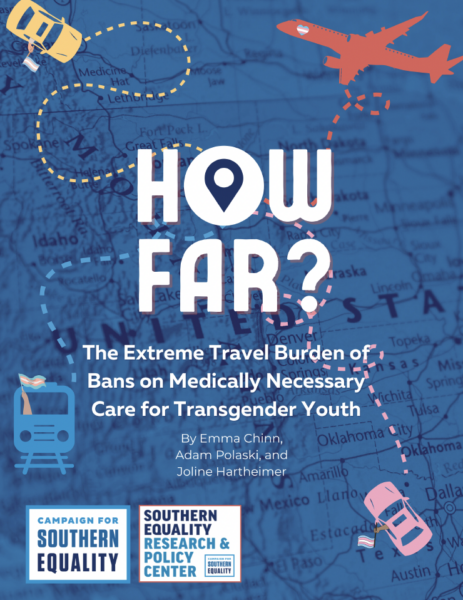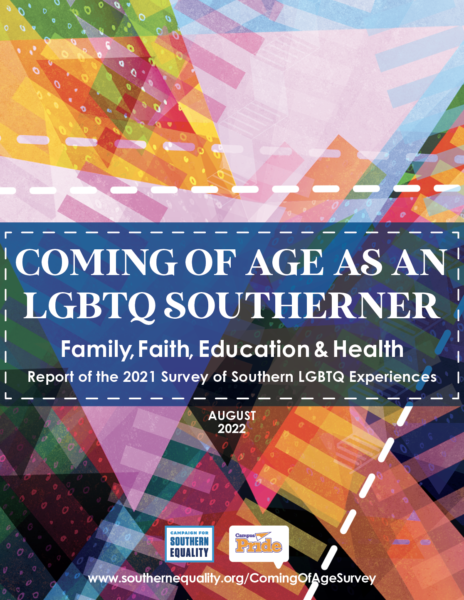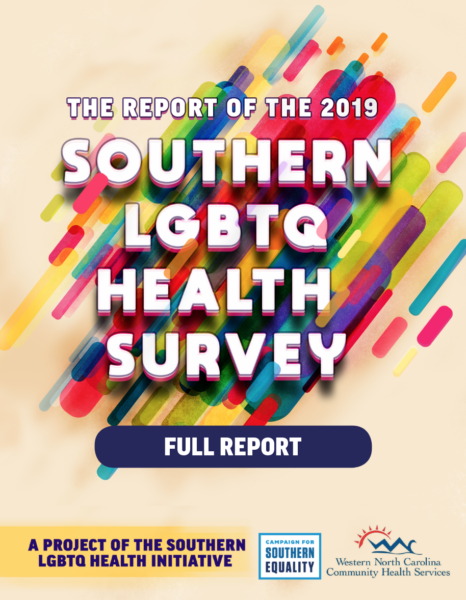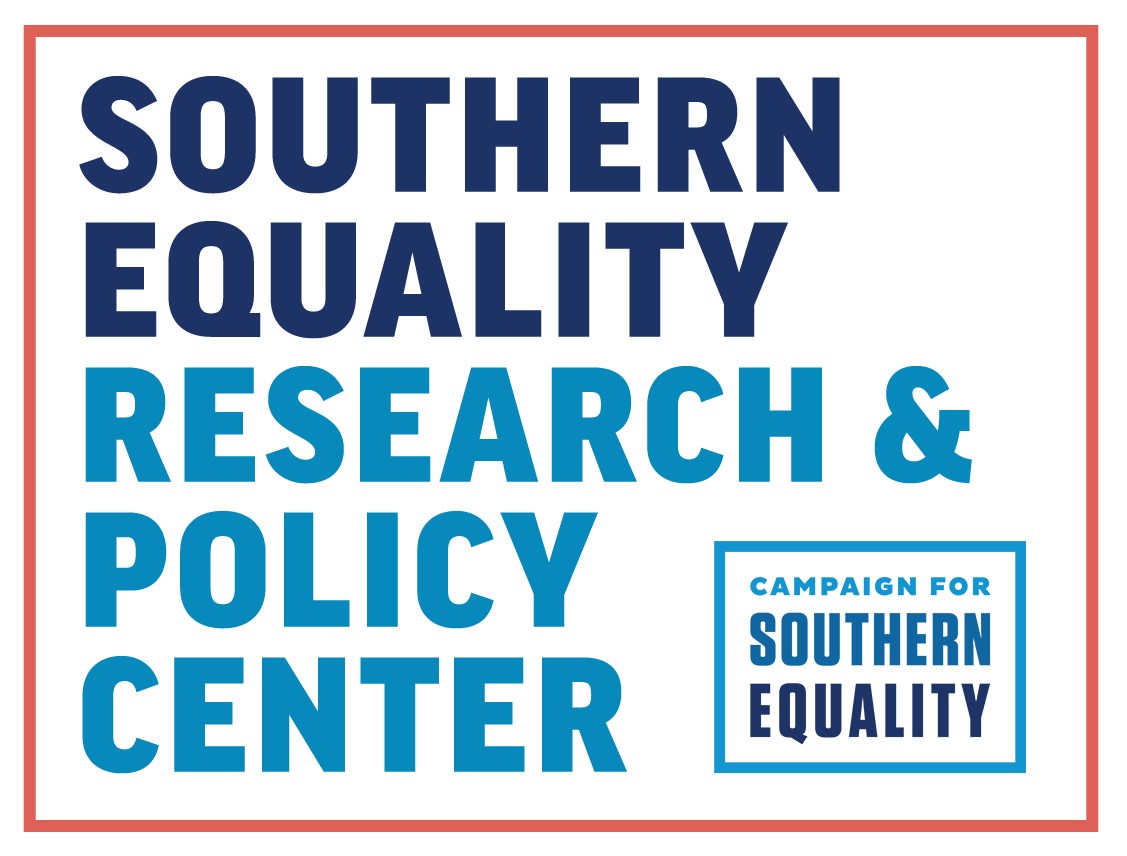 The Southern Equality Research and Policy Center (SERPC) conducts independent research and develops interventions to promote the legal and lived equality of LGBTQ+ Southerners.
The Southern Equality Research and Policy Center (SERPC) conducts independent research and develops interventions to promote the legal and lived equality of LGBTQ+ Southerners.
Through our community-based research, we promote an increased understanding of LGBTQ+ life in the South that is fact-based and can inform policies and strategies to promote the health, equity, and well-being of LGBTQ+ people in the region.
Navigate This Page:
➡️ Why SERPC?
➡️ Center Priorities
➡️ Publications
➡️ SERPC in the News
➡️ Apply to Access SERPC Data
➡️ Values Statement
The Center’s Priorities
Community-Based Research
Community-Based Research is the practice of community and academic stakeholders cooperatively investigating social problems that affect the lived experiences and life chances of marginalized groups. The goals of CBR are centered on the compilation of data that will aid organizers, policymakers, and other stakeholders in addressing those social problems.
Policy Research & Recommendations
The SERPC will play a role in conducting research to understand the impact of discriminatory bills and laws on LGBTQ+ people’s lives. The SERPC will advance CSE’s policy work by being a hub for the development of model policies and policy recommendations.
Equity
CSE’s work is rooted in commitments to equity in race, class and gender. As a methodological approach to social science, community based research is built on a foundation of equitable partnerships between researchers, organizers, and other stakeholders.
Engagement and Collaboration
Through various pathways toward community engagement, the SERPC seeks to place rigorous data about LGBTQ+ Southerners in the hands of the LGBTQ community, educators and school administrators, health care and other service providers, policy makers and law enforcement officials, journalists and activists.

More than thirty percent of all LGBTQ people in the United States call the American South home. Yet, less than ten percent of the social research on this population highlights the experiences of those in the region. The lack of data makes it challenging to craft rebuttals to, articulate the effects of, and secure protections against the attacks on LGBTQ people and communities in the South. The Southern Equality Research and Policy Center (SERPC) developed the Southern Equality Research Grant to support students and early career researchers conduct rigorous research investigating social problems that affect the lived experiences and life chances of LGBTQ people in the region. SERPC welcomes researchers to join us in Meeting the Moment in the LGBTQ South to assess local, state, and federal policies restricting the rights of LGBTQ people and examine the impact of these policies on LGBTQ people and their allies.
SERPC Publications
How Far? The Extreme Travel Burden of Bans on Medically Necessary Care for Transgender Youth
How Far? The Extreme Travel Burden of Bans on Medically Necessary Care for Transgender Youth is a new report that details the distances, costs, and logistical hurdles families face as they travel long distances for gender-affirming care.
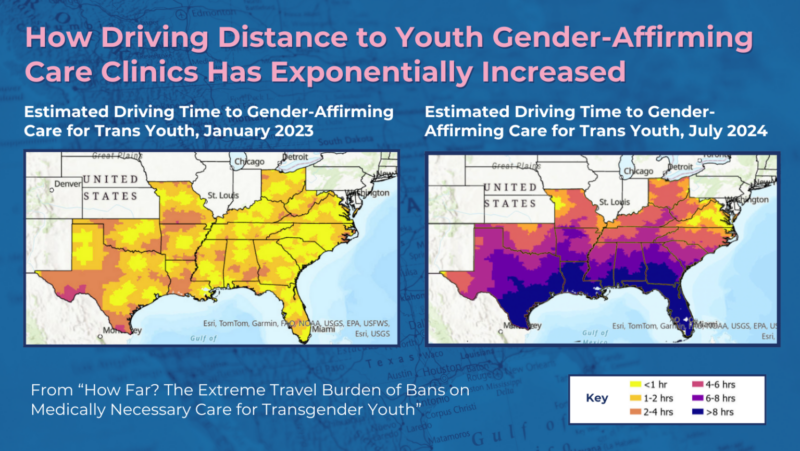
Coming of Age As An LGBTQ Southerner: Family, Faith, Education & Health
Coming of Age as an LGBTQ Southerner: Family, Faith, Education & Health, details the findings of the 2021 Survey of Southern LGBTQ Experiences, a survey of 4,186 LGBTQ people who live in the South. This report, released in partnership with Campus Pride, covers new data about LGBTQ Southerners’ experiences with family, faith communities, school, and health.
Breakout Reports
SERPC has also produced the following break out reports using 2021 Survey of Southern LGBTQ Experiences data.
The Report of the 2019 Southern LGBTQ Health Survey
The 2019 Southern LGBTQ Health Survey includes responses from more than 5,600 Southern LGBTQ people, one of the largest samples ever of LGBTQ Southerners talking specifically about their health. The Survey report covers new data about LGBTQ Southerners’ physical and mental health; overall quality of care; experiences with depression, anxiety, suicidal ideation, and self-harming behaviors; and experiences with HIV.
Issue and State Spotlight Reports
SERPC has also produced the following issue and state spotlight reports using 2019 Southern LGBTQ Healthy Survey data.
The Report of the 2019 Southern Tran Health Focus Group Project
“The Report of the 2018 Southern Trans Health Focus Group Project,” released in December 2018, documents the findings of a community-based research project through which diverse transgender Southerners across six states shared in-depth accounts of their experiences related to health issues and accessing health care.
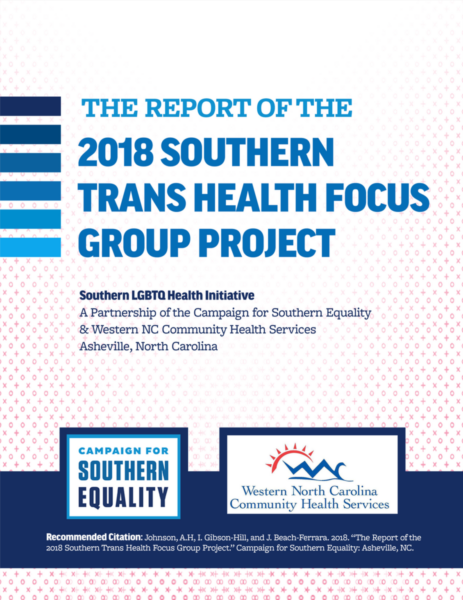
SERPC in the News
- Fast Company: Map: Getting healthcare for transgender youth is harder in much of the country • April 19, 2024
- ABC News: Trans care restrictions force some families to travel hours, spend hundreds for treatment • April 19, 2024
- Huffpost: It’s Much Harder And More Expensive To Get Gender-Affirming Care Than Ever Before: Report • April 4, 2024
- The Tennessean: New data on LGBTQ Tennesseans should be a wake up call to lawmakers | Opinion • January 31, 2023
- OutSmart Magazine: LGBTQ Southern Voters Do More Than Vote • November 7, 2022
- Indy Week: Report: Queer Youth Living in the South Experience Mental Health Struggles • September 9, 2022
- Los Angeles Blade: ‘Don’t Say Gay’ era: Coming of Age as an LGBTQ Southerner • September 3, 2022
- NBC News: Over half of LGBTQ Southerners say their parents tried to change or repress their identity, report finds • September 2, 2022
- Queer Forty: New research will help drive policy for LGBTQ+ South • August 25, 2021
- OutTake: New Southern LGBTQ Research Program • August 25, 2021
- WUNC: How Can Transgender Southerners Get Better Healthcare? • February 27, 2019
- Mountain XPress: New report examines health care disparities among transgender populations • January 19, 2019
- Advocate: The Lack of Trans-Friendly Doctors in the South Is an Injustice • January 14, 2019
Apply to Access SERPC Data
Are you a researcher interested in LGBTQ+ Southern experiences? Apply to access SERPC data, with responses from thousands of LGBTQ Southerners on topics like health, education, faith, family, and political engagement. Click to button below for a step-by-step guide to apply for data from our 2019 Southern LGBTQ Health Survey and 2021 Southern LGBTQ Experiences Survey.
Commitment to Independence, Objectivity, and Ethics in Research
The SERPC is committed to rigorous, independent research. We do not alter findings and conclusions to accommodate funders, partner organizations, government bodies, or other entities. As social scientists conducting original research, we are committed to ethical research practices. In all of our research, we adhere to the ethical principles of respect for persons, beneficence, and justice, outlined in the Belmont Report.
All lead researchers at the SERPC must demonstrate their commitment to respect for persons, beneficence, and justice through a written statement of ethical consideration. This statement should be submitted prior to data collection and will be reviewed by the Director or Deputy Director of the SERPC. Researchers working with the SERPC are also bound by the Institutional Review Board of any other current affiliated institutions and must provide documentation of IRB approval before engaging in data collection of any kind.

